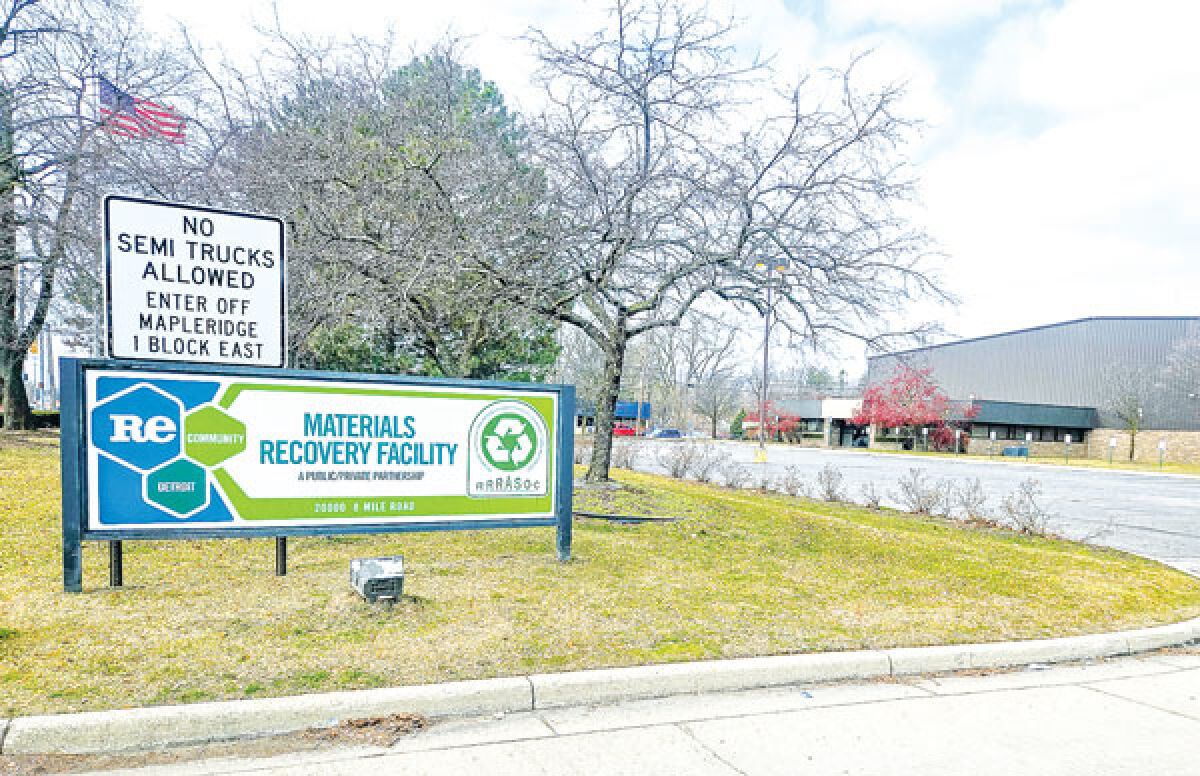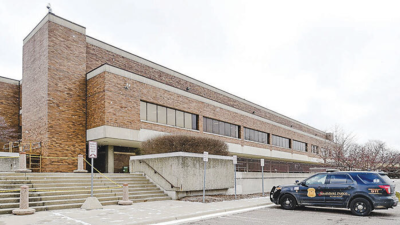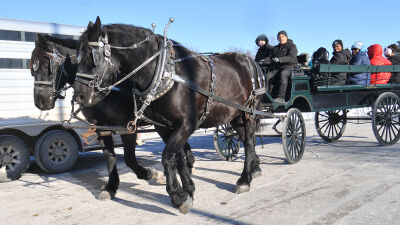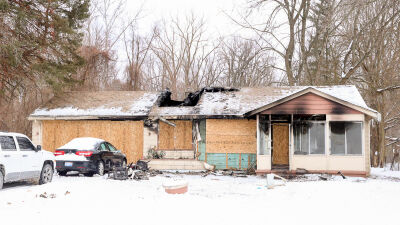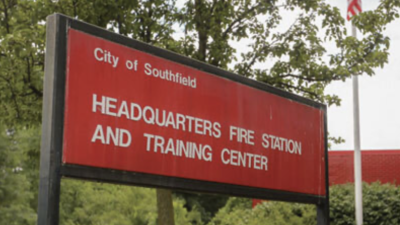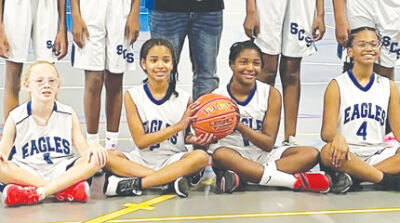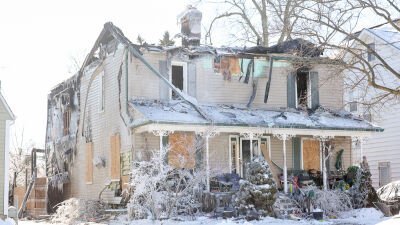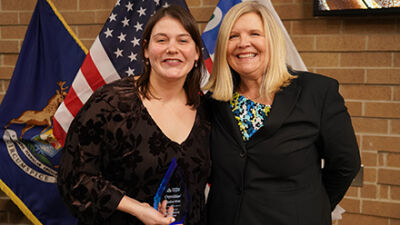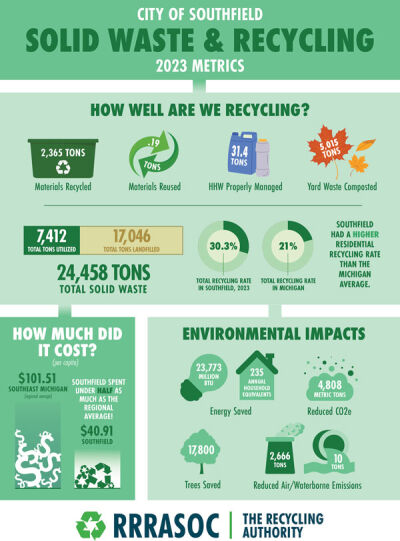
Last year, the city of Southfield was selected by APT Solar Solutions to participate in a pilot program. The city installed 20 solar-powered bollards along the southeast pathway in Red Pole Park.
Photo provided by Souzan Hanna
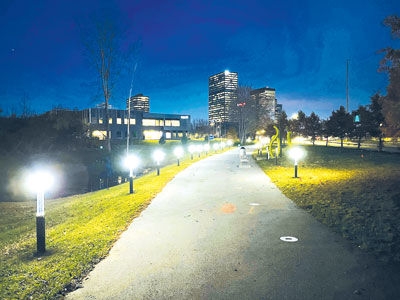
RRRASOC recently released its communities’ solid waste and recycling metrics for 2023.
Photo provided by Souzan Hanna
SOUTHFIELD — The Resource Recovery and Recycling Authority of Southwest Oakland County recently released their communities’ solid waste and recycling metrics for 2023, and Southfield’s recycling rate beat the state average.
“The metrics do fluctuate from year to year in part because the amount of yard waste changes with seasons,” Michael Csapo, the general manager of RRRASOC, said. “You get a rainy season or dry season, you’re going to have different amounts, and sometimes the economic conditions will control how much trash people generate.”
RRRASOC serves Farmington, Farmington Hills, Milford, Milford Township, Novi, South Lyon, Southfield, Walled Lake and Wixom.
In 2023, Southfield recycled 2,365 tons of materials, reused 380 pounds of materials, properly managed 31.4 tons of household hazardous waste and composted 5,015 tons of yard waste.
According to RRRASOC, Southfield’s residential recycling rate last year was 30.3%, higher than the Michigan average of 21%.
Additionally, Southfield spent under half as much per capita to process 24,458 tons of solid waste — $40.91 — as the regional average of $101.51 for southeast Michigan.
In 2022, Southfield recycled 2,327 tons of materials, reused 220 pounds of materials, properly managed 35 tons of household hazardous waste, and composted 5,443 tons of yard waste. For that same year, RRRASOC reported that Southfield had a total residential recycling rate of 30.5%, which was higher than Michigan’s average of 19% that year.
“Southfield is performing higher than in many communities in Michigan and well above the statewide average,” Csapo said.
Southfield’s neighboring RRRASOC community, Farmington, recycled 873 tons of materials, reused 360 pounds of materials, properly managed 9.5 tons of household hazardous waste and composted 1,299 tons of yard waste last year. RRRASOC reported that Farmington had a 54.3% residential recycling rate.
In 2023, Farmington Hills recycled 4,618 tons of materials, reused 760 pounds of materials, properly managed 55 tons of household hazardous waste and composted 5,713 tons of yard waste. Farmington Hills had a 35.2% residential recycling rate. Novi recycled 3,946 tons of materials, reused 600 pounds of materials, properly managed 66 tons of household hazardous waste and composted 3,914 tons of yard waste last year. RRRASOC reported that Novi’s residential recycling rate was 35.9% last year.
Souzan Hanna, Southfield’s sustainability planner, said that Southfield is currently involved in a food waste elimination study with a local nonprofit, Make Food Not Waste, based in Detroit and funded by a state grant. The study officially started in January.
“It’s one of a kind,” Hanna said. “No other municipality, at this point, has published a study on food waste elimination. So it’s taking a very drastic step in that sector of sustainability, to not only reduce food waste for the sake of saving food, but also reducing greenhouse gas emissions from wasted food. So it’s really exciting. That’s on the horizon. The study is anticipated to be completed in the fall of this year. We hope to utilize this study to obtain additional grant funding for projects that will be identified in the plan for how we can either salvage food, recycle food or compost food, so there’s going to be a lot of different strategies.”
In phase one of the study, Make Food Not Waste is leading a team to determine the resources needed to eliminate food waste in Southfield. At the end of phase one, a plan will be developed for Southfield to implement and will serve as a guide for other large cities to look to.
“We have all the right people. We’re looking at new technologies as well, to be able to implement in certain projects,” Hanna said. “So it’s definitely too early to tell what we could be doing at this point, but we’re very excited to see what the final product is going to look like and what kind of recommendations are going to come out of the plan.”
She said that in 2024, Southfield is looking to install solar-powered compacting recycling bins at the municipal campus as a pilot project.
Hanna explained that these kinds of bins are solar powered and will compact trash or recyclables when the containers become too full. They monitor in real time to see how much recycling has been diverted from the landfill. She added that these bins have been installed in many major cities throughout the U.S. such as Philadelphia and New York City and that, currently, there are no recycling bins out in the open on city property.
“We want to raise awareness and customize the four-sided bins with some education or artwork,” she said.
Hanna added that in 2023, the Sustainable Southfield website was launched to provide residents and local businesses with resources on recycling, composting and various sustainability efforts. On the renewable energy side of things, Hanna said that 20 solar light bollards were installed along the southeast pathway at Red Pole Park as part of a pilot study with a new company, APT Solar Solutions, which is dedicated to “improving solar lighting technology by creating off-grid products.” The city is monitoring the bollards, and there is a possibility of more solar-powered bollards being installed in other parts of Southfield.
“Ultimately, sustainability is making something last for the future,” Hanna said. “So, hopefully, if we’re not really excelling in one aspect of sustainability, we’ll gradually build there, or if we are doing something really great, we’ll continue to do it. And if there’s room for improvement, we’ll continue to improve.”
For more information on RRRASOC, visit rrrasoc.org.
For more information on Southfield’s sustainability projects and initiatives, visit cityofsouthfield.com/news/city-southfield-seeks-public-input-sustainable-southfield-survey.
For more information on Make Food Not Waste, visit makefoodnotwaste.org.
 Publication select ▼
Publication select ▼